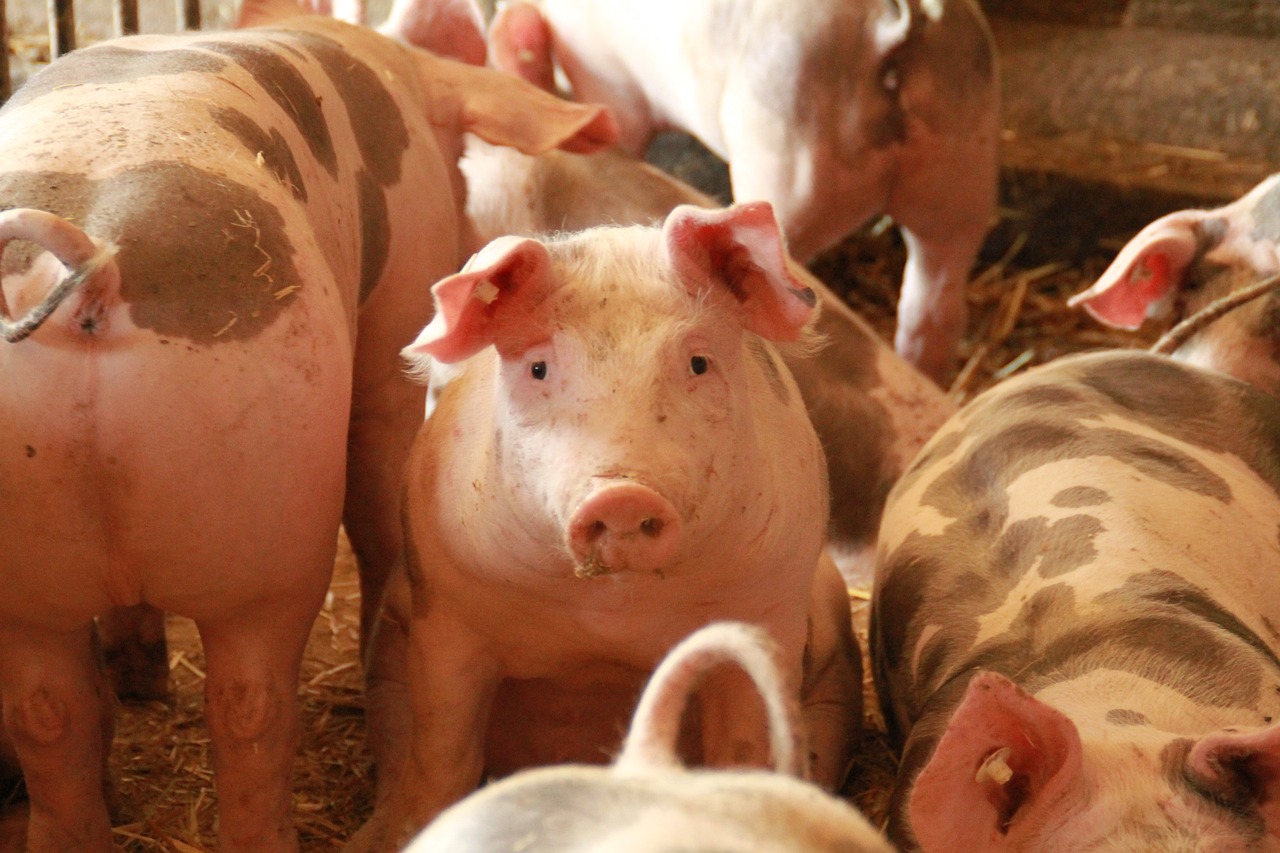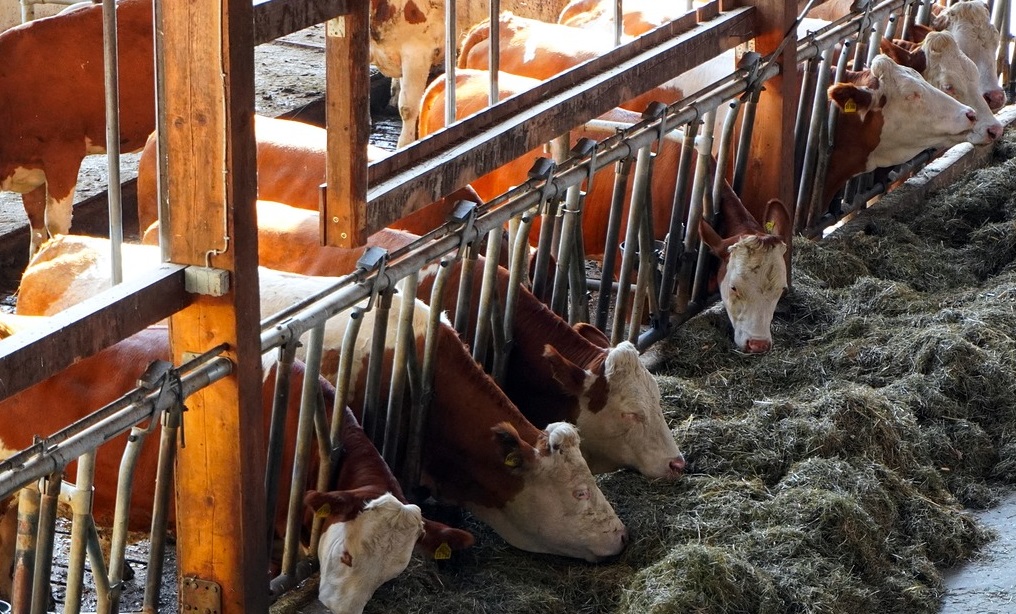Animal production
The production of animals is a longstanding human practice of food provision. Yet trends over the past century and especially in recent decades in how many societies organize animal agriculture at ever greater scales places a significant and growing burden on the environment, biodiversity, and the climate - not to mention the animals in production and their human caretakers. Our research network "Animal Production within planetary boundaries" explores new and alternative methods and ways of thinking that may enable more sustainable animal production in a comprehensive sense.

For over 10,000 years, humans have kept livestock to obtain milk, eggs, and meat. Livestock farming is part of the culture for people all over the world
Today, in many places, livestock farming has become an industrial production of animals that produce protein-rich food for millions of people. However, animal-based diets place a significant burden on our environment and climate. Emissions of nitrogen, greenhouse gases from the animals, and deforestation to produce feed are just some of the negative consequences of modern animal production.
Beyond issues related to climate, our current animal production systems face a multitude of challenges: Animal welfare is often at stark odds with efficiency strategies. Industrial scale animal production has been implicated in evolution of novel pathogens with possible panzootic and human pandemic potential. And development of rural areas is at risk if the young generation is not allowed to transform the sector into a sustainable system that they can be proud of. As the world's population grows and the demand for animal protein persists, these problems will only increase in the coming decades.
So how can we ensure a more sustainable animal production that observes limits to permitted resource use and foregrounds human, animal, and ecological wellbeing? This is what our research network " Animal Production within planetary boundaries" is investigating from a diverse set of scholarly disciplines.
Paths to Sustainable Animal Production
There is no simple solution to the challenges of animal production. Sustainable solutions must consider both technological development, structural conditions and cultural adaptation.

On the one hand, new technologies, genetic improvements, artificial intelligence, new sensor technology and precision farming may all help make animal production more efficient by utilizing feed more effectively and reducing waste including loss due to disease and poor animal welfare. In this way, we may ensure higher yields and less waste, emissions, and discharge per kilo of animal product.
The goal is to determine what is required – in terms of technology, economy, product quality, and societal values – to create an animal production that heeds planetary boundaries.
On the other hand, an alternative solution could be production systems based on a "reduced input - reduced output" philosophy and the use of alternative feed sources, combined with changes in societal values and consumer demands. More extensive livestock systems that factor in ecosystem services and biodiversity need to explored and crafted.
KU's Work on Sustainable Animal Production
In our research network "Sustainable animal production" a number of researchers from various disciplines (humanities, social sciences, natural sciences) at UCPH work together to create new solutions for sustainable animal production. Through acknowledgement of planetary boundaries, we examine the role of domestic animals in the circularity of biological systems, while we pursue ecological and social sustainability, animal wellbeing, and secure livelihoods for our food producers in a way that do not compromise the comprehensive sustainability goals. The goal is to determine what is required – in terms of technology, economy, product quality, and societal values – to create a climate-neutral animal production sector.
Researchers in the network
| Arne Henningsen | Department of Food and Resource Economics | Faculty of Science |
| Carsten Nico Portefée Hjortsø | Department of Food and Resource Economics | Faculty of Science |
| Carsten Thure Kirkeby | Department of Veterinary and Animal Sciences | Faculty of Health |
| Frida Hastrup | The SAXO Institute | Faculty of Humanities |
| Johannes Gulmann Madsen | Department of Veterinary and Animal Sciences | Faculty of Health |
| Nathalia Brichet | Department of Veterinary and Animal Sciences | Faculty of Health |
| Peter Karlskov-Mortensen | Department of Veterinary and Animal Sciences | Faculty of Health |
| Rebecca Leigh Rutt | Department of Food and Resource Economics | Faculty of Science |
| Department of Veterinary and Animal Sciences | Faculty of Health |
